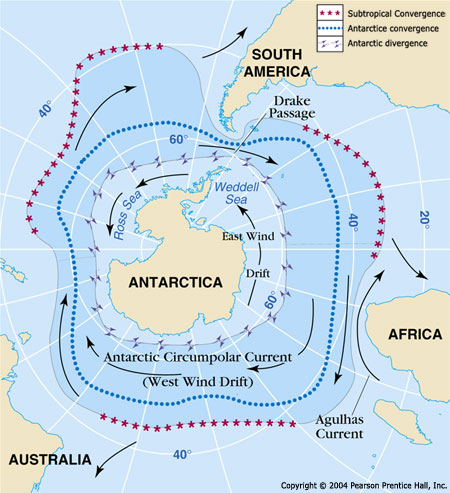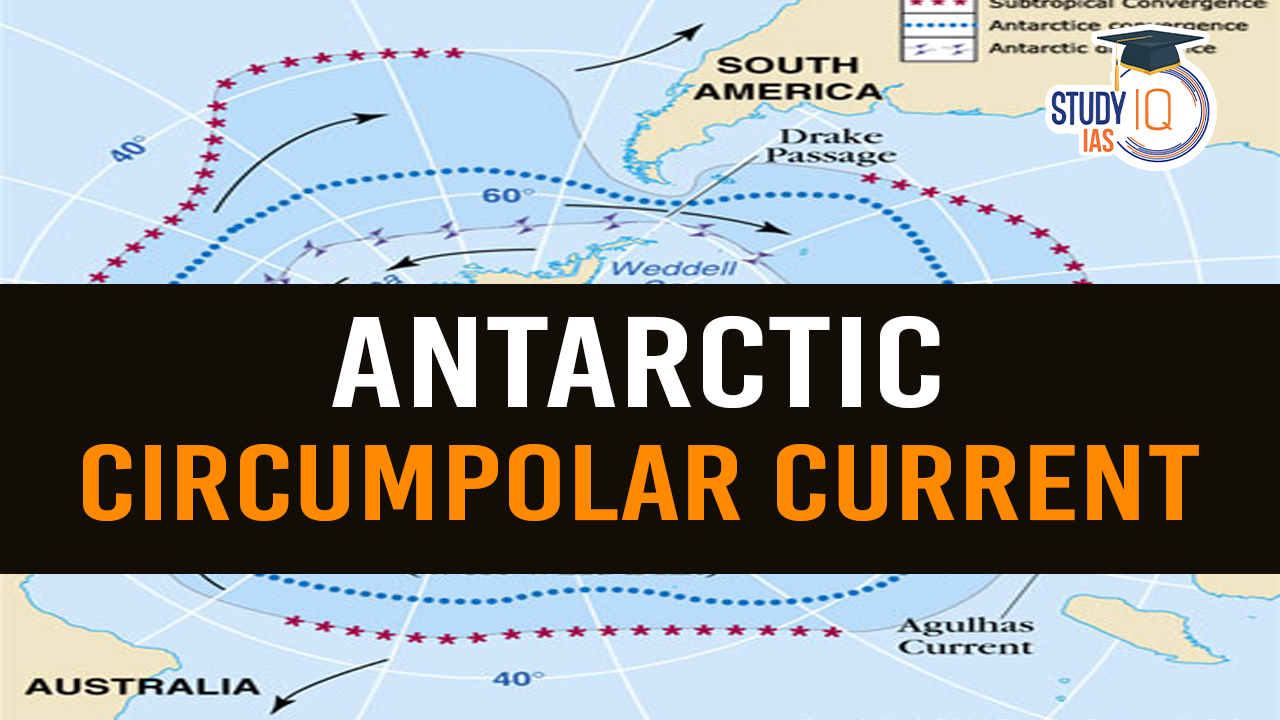Table of Contents
Context: A study by the University of Melbourne has predicted that the ACC may weaken by 20% by 2050 under a high carbon emissions scenario.
About Antarctic Circumpolar Current (ACC)
- It is the world’s strongest ocean current, moving in a clockwise direction around Antarctica.
- It connects the Atlantic, Indian, and Pacific Oceans.
- It is four times stronger than the Gulf Stream, transporting about 165 million cubic meters of water per second.

Significance
- Regulates heat and carbon dioxide uptake in the ocean.
- Prevents warmer waters from reaching Antarctica, thus preserving ice sheets.
- Blocks invasive species (e.g., bull kelp, shrimp, mollusks) from other continents reaching Antarctica.
| Reasons for weakening of ACC |
|
Potential Impacts of a Weaker ACC
More Extreme Weather & Climate Instability
- ACC influences global wind and weather patterns.
- A weaker ACC can lead to stronger storms, heat waves, and extreme climate events
Increased Global Warming
- The ocean absorbs about 90% of the excess heat trapped by greenhouse gases.
- If the ACC weakens, the ocean’s ability to absorb heat and carbon dioxide declines, accelerating global warming.
Rising Sea Levels & Ice Sheet Melting
- The ACC prevents warm waters from reaching Antarctica.
- If it weakens, warmer ocean currents will erode Antarctic ice shelves, leading to faster sea level rise.
Disruption of Ocean Circulation
- The ACC is connected to global ocean currents, including the Atlantic Meridional Overturning Circulation (AMOC).
- A slowdown can weaken major ocean currents, disrupting rainfall, monsoons, and agricultural patterns.


 Geological Heritage Sites of India: Sign...
Geological Heritage Sites of India: Sign...
 Places in News for UPSC 2026 for Prelims...
Places in News for UPSC 2026 for Prelims...
 Lake Natron: Location, Features, Wildlif...
Lake Natron: Location, Features, Wildlif...




















